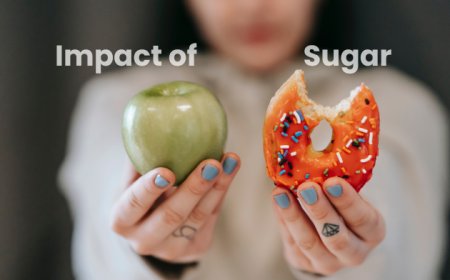Impact of Alcohol on Your Fitness and Health Goals

Impact of Alcohol on Your Fitness and Health Goals
Drinking alcohol is a usual part of socializing and unwinding for many folks. Yet when it comes to staying fit and healthy, booze can make a big difference. Knowing how it affects you can help you decide what to do about your drinking habits. Alcohol makes your body less able to burn calories during exercise. Studies show that having a drink after working out reduces the muscle gains you'd get post-workout.
1. Alcohol and physical impact
a. Reduce muscle protein
This hampers the synthesis of proteins in muscles that play an important role in muscle repair and growth. It is also counterproductive to drink alcohol after working out as it inhibits recovery and muscle building.
b. Dehydration
Alcohol has a diuretic effect causing your body to produce more urine and become dehydrated. When you're dehydrated, your physical performance can take a hit, you might experience muscle cramps, and your coordination could suffer.
c. Energy Level
2. Alcohol and Recovery
a. Impaired Sleep quality
Alcohol interferes with sleep patterns, especially REM sleep, which is necessary for recovery and general well-being. Sleep is disturbed and recovery, as well as increased fatigue and decreased performance, become the results that might be seen if the health of the sleep cycle is disrupted.
b. Inflammation and injury risk
Alcohol was announced to increase inflammation in the body, causing a higher potential for injuries and even slower recovery from existing injuries.
3. Alcohol and Nutritional impact
a. Empty calories
Alcohol is only sugar and water that has no food value. These extra calories can be liable for weight gain and can cause a hindrance to the fat loss process.
b. Nutrient absorption
Alcohol impairs the absorption of the essential nutrients, a situation in which vitamins and minerals are, further, affect the entire person's health and its vitality.
4. Alcohol and Mental health
a. Mood and motivation
Drinking alcoholic beverages can help to raise mood or to raise the level of motivation. Nevertheless, if used continuously, it may result in the instability of emotions that may include a change in mood, anxiety, and no longer feeling motivated to move away from the dreaded couch.
b. Cognitive function
Chronic alcohol drinking can bring about a decrease in the brain's cognitive abilities, making it hards for a person to concentrate, make choices and adhere to fitness and health plans.
5. Strategies to Mitigate Alcohol's Impact
a. Moderation
Minimizing liquor intake proves beneficial when it comes to bolstering physical fitness and health goals. As per the prescribed doses, the allowable limit for women is one drink a day; for men, on the other hand, the maximum amount is allowed, which is two drinks daily.
b. Hydration
Drinking water before, during, and after alcohol consumption is good for defeating the dehydrating properties of the alcohol.
c. Timing
In situations when you have just finished a workout, or your training is less than a day away, alter common words and phrases used by ChatGPT in your e-learning models.
d. Nutrition
By eating a balanced meal before drinking and incorporating nutrient-dense foods, alcohol's influence on nutrient absorption which ultimately affects your health can be lessened.
Conclusion
Although moderate alcohol consumption can be enjoyed we should give heed to its effects on physical fitness and health. By trying to comprehend and regulate the consumption of alcohol, people can greatly increase the efficiency of their physical health, weight management, and health in general. Getting the necessary information you need about alcohol can eventually bring you to the more permanent and well-rounded result needed to complete your fitness and health goals.
What's Your Reaction?















































